How to Clear a Stuffy Nose with Home Remedies
By Dr. Raghuveer +2 more

Get,

to manage your symptom
Get your,


4 Cr+ families
benefitted

OTP sent to 9988776655



You’ve successfully subscribed to receive
doctor-approved tips on
Whatsapp

Get ready to feel your best.

Hi There,
Download the PharmEasy App now!!


Register to Avail the Offer
Send OTPBy continuing, you agree with our Privacy Policy and Terms and Conditions

Hi There,
Sign up on PharmEasy now!!
Trusted by 4 crore+ families

OTP sent to 9988776655



You have unlocked 25% off on medicines




Code: NU25
By Dr. Raghuveer +2 more
Table of Contents
A stuffy nose can be very annoying; it gives you a feeling of fullness in nose and face and even makes it difficult for you to breathe. You may feel that your nose is blocked and packed with a lot of mucus. Stuffy nose or nasal congestion happens because of irritation to the nasal tissues, which stimulates the nasal nerves and enhances the amount of blood entering the nose. This causes swelling of your nasal passages and increases mucus production that makes your nose feel stuffy.
While medical management is needed in some cases, natural remedies are usually effective and safe in dealing with a stuffy nose in earlier stages. In this blog, we will share a few simple home remedies and procedures that can help you deal with a stuffy nose. We’ll also discuss the causes and management of nasal stuffiness in children and when it is important to consult a doctor for nasal congestion.

There are various causes of the stuffy nose that include:
There are various lines of treatments according to the underlying cause. Whenever you feel nasal congestion or other stuffy nose symptoms, like sneezing, fever, and postnasal drip, persist for more than ten days, you need to seek medical attention.
While medical treatment is needed in some cases, a stuffy nose can be managed well with some home remedies in an earlier phase. Home remedies and palliative measures can work effectively to calm the irritated nasal passage. These include:
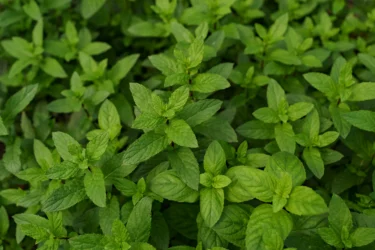
Peppermint is very effective in clearing a stuffy nose. It contains menthol, which is a decongestant that helps in thinning mucus and clearing nasal passages1.
Applying a small amount of diluted peppermint essential oil on the sides of your nose can provide a cooling sensation and help stop a runny nose. You can also add peppermint leaves to steam and inhale or drink a hot cup of peppermint tea 2-3 times a day.
Saline solutions, steam and decongestants are very helpful in addressing concerns about nasal congestion. Steroids may again be used but with utmost caution and for the shortest possible time since their use beyond a continuous period of 3 days or so may worsen the congestion and damage the nasal mucosa.
Dr Ashish Bajaj , M.B.B.S, M.D. in Clinical Pharmacology and Toxicology
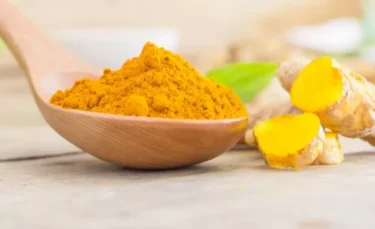
Turmeric can be very beneficial in managing a stuffy nose. Its active compound curcumin has natural anti-inflammatory properties which helps relieve congestion in the nose and sinuses and makes it easier to breathe2.
You can add some turmeric to a hot cup of milk with honey and consume before sleeping.
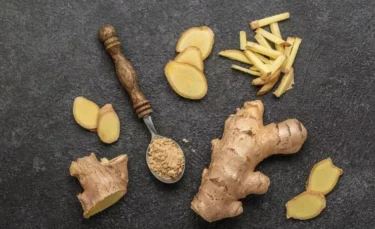
Ginger is high in anti-inflammatory properties and antioxidants that may help reduce the stuffy nose. It is super effective against a clogged nose. You can use ginger as a compressor3.
For the compressor, you can boil 2 cups of water with ginger pieces in it. Soak a fresh washcloth in the brew and place it on your face gently for 15 minutes. You can also make ginger tea and drink this tea thrice daily for instant relief from a stuffy nose. However, avoid overconsumption and be especially careful if you have any medical conditions.
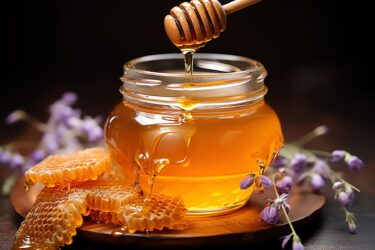
Honey is versatile and beneficial for various health conditions, making it valuable for stuffy nose management. It is a rich source of powerful nutrients such as vitamins and minerals. It is also believed to have antimicrobial property that helps fight against various bacterial infections. Honey can calm the nasal passage, soothe an itchy throat, and clear the excess accumulation of mucus4.
Two tablespoons of honey with a cup of lukewarm water can clear your clogged nasal passage. You can also add honey to milk or tea to relieve your symptoms. But consume wisely, particularly if you’re diabetic, as honey has high sugar content.

Garlic is a very good source of antioxidants that stimulate your immune system by aiding the formation and function of white blood cells. It helps in the production of antibodies that may fight against your respiratory complaints5.
You can add some garlic cloves or crushed garlic in hot soup and consume at least twice a day.
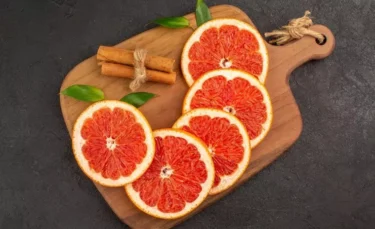
Grapefruit is a rich source of vitamin C and antioxidants that help to boost your immunity. It has been shown grapefruit seed extract works as an anti-viral agent, which can help fight respiratory infections and manage symptoms such as nasal congestion6.
For best results, add a few drops of grapefruit extract in warm water and inhale it. The steam of this extract may clear your blocked passage instantly.
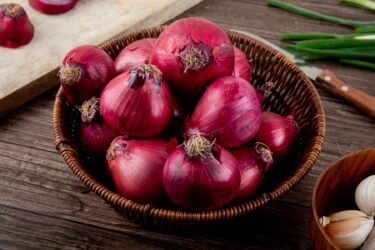
Onion is rich in vitamins and antioxidants and thus have several health benefits. They can help relieve inflammation and allergies. Onions can be consumed in food for soaking in their benefits, however, for clearing nasal congestion, inhaling its vapours may be helpful7. It is believed that smelling onion for 5 minutes can help clear your stuffy nose.

There are a lot of spices available in the Indian kitchen, out of which, black pepper is said to work wonderfully for a stuffy nose. Others like hot peppers or horseradish can also temporarily clear nasal passages and reduce congestion due to the capsaicin content.
You can make a drink of a tablespoon of black paper and a tablespoon of honey. Mix these ingredients and add them to water and boil the water. Drinking this mixture can provide quick relief from a stuffy nose.

Apple cider vinegar is rich in essential nutrients that are necessary to get relief from a stuffy nose. It also has antibacterial and antifungal properties which can help fight infections and provide relief from a stuffy nose8.
Mix 2 teaspoons of apple cider vinegar with warm water and consume it at least 3 times a day. You can also add a tablespoon of honey to this drink.

Drinking a lot of warm liquids in various forms such as soups and teas can help to relieve your blocked nose. It can help thin the mucus in your nasal passages, pushing the fluids out of your nose and decreasing the pressure in your sinuses.
Although most of these home remedies are backed by research for their effectiveness in relieving nasal congestion or stuffy nose, further long-term human trials are needed to support the claims. However, use them in moderation and be extra cautious if you have any medical issues. Also, remember that these should never be a replacement for medical therapy when needed.
A neti pot works at its most basic level. It thins mucus and helps flush it out of the nasal passages. Research10 backs up these claims, showing that nasal irrigation can be an effective way to relieve sinus symptoms when used along with standard treatments.
Dr. M.G. Kartheeka, MBBS, MD(Pediatrics)
While these home remedies may be helpful, you need to be persistent and patient to see the results. Fortunately, there are also a few effective techniques you can practice at home to help also you unstuff your nose instantly. These include:
Remember, these methods can provide temporary relief, but if your nasal stuffiness persists or is accompanied by other severe symptoms, it’s advisable to consult a healthcare professional. Additionally, staying hydrated and getting adequate rest can also contribute to a quicker recovery.
A stuffy nose in babies and young children is a common occurrence, and it can be distressing for both the child and the parents. Let’s explore the potential causes, effective remedies, and relief strategies for dealing with a stuffy nose in infants and kids.
Also Read: 10 Health Benefits Of Black Coffee
While a stuffy nose in babies and kids is often a minor and temporary issue, consult a healthcare professional if symptoms persist or worsen. They can provide guidance and rule out any underlying concerns, ensuring your child breathes easy once again.
Also Read: Causes and Home Remedies for Shortness of Breath
Hopefully, these home remedies for a stuffy nose can help you get some much-needed relief. However, in some cases, you may not experience any progress or recovery. Here are some things to keep in mind that may need medical attention:
These symptoms may point towards a serious bacterial or viral infection, or some other root cause. Please be sure to inform your doctor or meet them at the earliest in case you have the above symptoms.
Also Read: Home Remedies For Runny Nose
A stuffy nose can be frustrating, with blockage of nasal passages and an excess of mucus. Causes include bacterial, viral or fungal infections, allergies and more. Seeking medical attention is necessary if symptoms are persistent or are accompanied by fever. However, early-stage relief can be found through some effective home remedies like peppermint, turmeric, ginger, honey, garlic, grapefruit extract, onion, spices, apple cider vinegar and warm drinks. Some simple procedures like steam inhalation, warm compresses and nasal irrigation can help provide instant relief. But remember, for severe symptoms like difficulty breathing or persistent fever, immediate medical attention is essential. By understanding these remedies and symptoms, individuals can take control of their stuffy nose discomfort and seek expert evaluation if necessary.
A stuffy nose itself is not contagious, but the conditions causing it, such as colds or flu, can be contagious. Proper hygiene, like frequent handwashing and avoiding close contact with infected individuals, can help prevent the spread of viral infections.
To prevent a stuffy nose during allergy season, stay indoors when pollen counts are high, keep windows closed and use air purifiers to reduce allergens. Regularly cleaning and dusting the house can also help minimize exposure to allergens.
Blowing the nose too forcefully can lead to ear pressure changes, and if done frequently or aggressively, it may irritate and damage the delicate nasal lining. Gently blowing one nostril at a time is recommended.
Engaging in regular exercise can improve blood circulation and boost the immune system, which may indirectly help with nasal congestion by keeping the body healthy and reducing the severity of colds and allergies.
Stuffy noses at night can result from allergies, sinusitis, or dry indoor air. To improve nighttime breathing, consider using a humidifier, elevating your head with extra pillows, or using saline nasal spray before bed.
Yes, a stuffy nose can lead to headaches. Nasal congestion can create pressure in the sinuses, which may result in sinus headaches. Additionally, the reduced oxygen intake due to nasal congestion can contribute to general tension-type headaches.
Yes, a stuffy nose can lead to ear pain. The connection is due to the Eustachian tube, which connects the middle ear to the back of the throat. When the nasal passages are congested, the Eustachian tube may not function correctly, leading to ear discomfort or pain as pressure builds up in the middle ear.
Yes, a stuffy nose can cause a temporary loss of smell. When the nasal passages are congested, it can block the flow of air and prevent odour molecules from reaching the olfactory receptors in the nose, resulting in a diminished sense of smell.
A stuffy nose due to air conditioning is typically caused by the cold, dry air that can irritate and dry out the nasal passages.
A stuffy nose due to a fan is typically caused by the fan circulating allergens and dust in the air. These airborne particles can irritate the nasal passages, leading to congestion and a stuffy nose.
A consistent stuffy nose can result from various factors, including allergies, infections, or structural issues like a deviated septum. Allergic reactions to pollen, dust, or pet dander, for example, can lead to nasal congestion. It’s essential to identify the underlying cause with the help of a healthcare professional for effective treatment.
Disclaimer: The information provided here is for educational/awareness purposes only and is not intended to be a substitute for medical treatment by a healthcare professional and should not be relied upon to diagnose or treat any medical condition. The reader should consult a registered medical practitioner to determine the appropriateness of the information and before consuming any medication. PharmEasy does not provide any guarantee or warranty (express or implied) regarding the accuracy, adequacy, completeness, legality, reliability or usefulness of the information; and disclaims any liability arising thereof.
Comments

Leave your comment...
You may also like
Comments